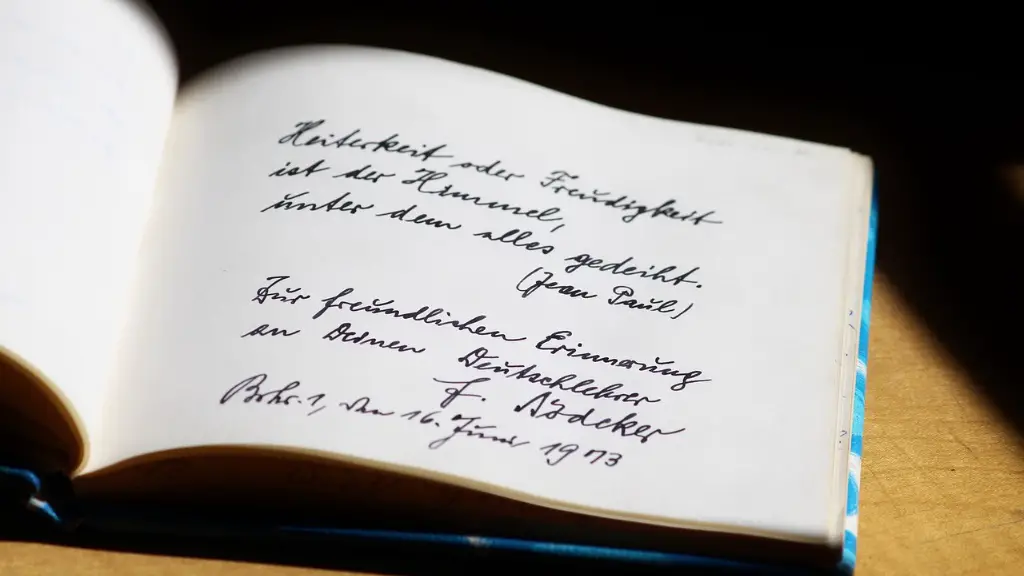Robert Frost was one of the great American poets of the twentieth century – a master of imagery, narrative and word play. His poems are known for the way in which they capture the beauty of the natural world, in so doing highlighting the profound existential questions that haunt people throughout their lives. One of Frost’s most celebrated poems is ‘Stopping By Woods On A Snowy Evening’, a captivating piece of literature that conveys both a tangible sense of the peacefulness of nature and a deeper gnawing awareness that life’s journey is but temporary and ultimately transient.
The poem begins with the vivid scene of the woods while referenced in the title, a tranquil place filled with snow and with no one else around. The poem’s narrator is on a horse, with whom he has a strong connection, and he stops his journey to take in the beauty of the snow-covered woods. From the perspective of the narrator – and his horse – the silence brings a sense of peace and freedom that is profoundly attractive.
The narrator struggles to move on, yet he is aware of the expectations that accompany life’s journey. He says “the woods are lovely, dark and deep”, understanding the powerful draw of the woods and the difficulty of rejoining his journey. Ultimately, he resigns himself to the reality that he must leave, the task ‘must be done’, and there is hope for a satisfactory resolution as he says “I’ve promises to keep, and miles to go before I sleep”.
The poem’s imagery successfully captures both the transitory nature of life and the undeniable power of nature and its serene beauty. The poem’s narrator, whose travels take place in darkness, encounter the momentary solace of the woods and its “easy wind and downy flake”. The power of Frost’s ‘Stopping By Woods On A Snowy Evening’ comes from its delicate attempt to bridge the mundane and the transcendent and arguably points to the importance of nature in offering moments of fleeting relief and respite.
The strength of the poem lies in its ability to convey the beauty and adventure of life, whilst being conscious of the ever-present impermanence. The poem’s narrator is aware of this truth and the inevitability of moving on. Despite his promise to himself that he would never wholly depart from the beauty of the woods, life’s journey must be continued, “with miles to go before I sleep”.
Nature’s Strong Reservoir of Power
Frost’s poem illustrates the power of nature to draw people in and the feeling of peace that it can offer. The poem incorporates some of Frost’s regular themes, such as the power of the natural world and the presence of a higher energy or consciousness that often lies beyond the realm of our understanding. The narrator attempts to capture the beauty of the natural world around him, and in doing so, acknowledges a divine power within the silent serenity of the woods. The feel of the poem is that of being surrounded by nature, emphasized by its winter setting, which is of a classic Frostian landscape. The poem itself creates the sense of peace and stability that invites the reader in, with its rich and vivid imagery.
The idea of nature as a powerful repository of strength and a source of solace is poetically expressed by Frost in ‘Stopping by Woods’. The narrator, overcome by the beauty of the snow-covered woods, wishes he could remain in such a peaceful environment and forget the obligations of life. The narrator, undoubtedly, is affected by nature in a way that cannot be easily understood nor explained. He fantasizes about getting lost in the serenity of the moment and forgetting the demands of life, yet in the end he must move on, accepted the temporary nature of this experience. In this way, Frost’s poem conveys the intensity of the power of nature.
Symbols and Metaphors
Frost’s poem employs several key symbols and metaphors that underline its deeper symbolism. The use of imagery and symbolism helps to convey the idea of a spiritual force in the woods – for instance, the phrase “the only other sound was the sweep of easy wind and downy flake” serves to emphasise the stillness of the snowy evening, and the sense of peace surrounding the narrator. In this way, the simple image of snow creates a ‘sacred’ atmosphere in Frost’s poem. The horse which carries the narrator is also a central symbol in the poem, illustrated with the phrase “He gives his harness bells a shake”. This is symbolic of the narrator’s unease at leaving the peace of the snow-covered woods and is used to portray the spiritual connection between the narrator and the sacred environment of nature.
Social Commentary
The poem is in many ways a comment on the human condition and a reflection on the path that life takes. Frost’s poem leans heavily on the power of nature, something which was an idea pervasive in many of Frost’s works. The poem speaks of the struggle between fulfilling responsibilities and following what one’s heart desires and may possibly be interpreted as a comment on the tension between modern life and the traditional rural life which Frost so liked to portray in his work. It could also be seen as a metaphor for Frost’s own life – his career as a teacher and farmer, the struggle between the demands of city life and the satisfaction that comes from the simpler things. Frost’s poem is therefore inextricably linked to the natural world and is a comment on the irrationality and complexity of life.
Advent of Technology
Frost’s poem can also be interpreted in light of the rise of technology in the modern world. As many of us become increasingly occupied with our digital lives and the bustle of city life, we are in danger of losing our connection to the wider environment. The reference to the quietness of the woods serves to remind us of the beauty and power of nature and nurture the connection we have between our physical and spiritual lives. As Frost himself wrote, “Nature is what we see, the rest is the art which we must learn to understand.” This suggests that Frost was aware of the increasing dominance of technology in our lives and this poem is an appeal for us to remember our connection to the environment and tap into its greater power.
Nostalgia for Rural Life
Frost’s poem contains several layers of symbolism, most poignantly conveying a sorrowful nostalgia for traditional rural life. While the speaker initially finds solace in the peacefulness of his surroundings, he is ultimately aware of his obligation to move on and this sets him apart from the woods which represent the abiding pastoral life. The narrator’s awareness of his own mortality, or that of the transience of life, is highlighted by his reference to “miles to go before I sleep”, adding a further layer of poetic poignancy. The contrast between the familiarity and stillness of the woods and the obligation to move forward conveys a sense of nostalgia for a simpler way of life.
Misty Reality of Life
Frost’s poem captures the feeling of uncertainty that can so often accompany life’s journey. The speaker’s journey is cloaked in darkness, leaving him engulfed in a sense of disorientation. This is further highlighted when the speaker refers to the woods being “lovely, dark and deep”. This suggests that the journey which the narrator embarks on is of longing and uncertainty, and it is within the darkness of the woods that he finds solace. This helps to convey Frost’s concept of life as a jumble of contradictory stories, where the speaker is surrounded by mystery, unsure of the paths that lie ahead.
Stress of Balancing Life
The challenges of life are addressed in Frost’s poem, alongside the necessity of finding peace and balance between work and leisure. The narrator is deeply drawn to the peaceful beauty of the snow-covered woods, yet he is reminded of his obligations to move forward with his journey. There is an inner struggle for the narrator to decide between following his heart and fulfilling his duties, a struggle which is present in all of us. This inner tug-of-war is a powerful reminder of the difficulty of seeking harmony in a world of competing demands.
Quest for True Connection
Ultimately Frost’s poem is an ode to the power of nature, the power to connect with something far beyond our comprehension. What the narrator seeks is something more than mere reprieve from the demands of life; he seeks something far deeper and more fundamental. His journey takes him to the gates of a higher reality, encompassed by the enveloping silence and peace of the snow-covered woods. His journey illustrates the quest for a deeper connection, a connection which may only be achieved through an appreciation and understanding of the natural world.



